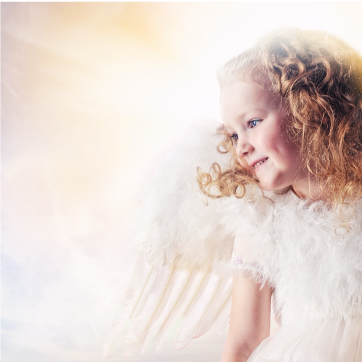Wisdoms from heaven
Lessons
- 1. Everything around you is born out of the Divine All-Source of Love (Click on the Lesson and then on the pictures)
- 2. There is no death, there is only evolution
- 3. The Divine Cycle for the human being
- 4. The Cosmic Laws of Father- and Motherhood guide the evolution of Human and Universe
- 5. The Divine Fatherhood and Motherhood in the ancient Vedas
- 6. The Motherhood of humanity is Cosmic Holy
- 7. The deeply moving "miracle" of pregnancy
- 8. Why does a child look like the father or the mother?
- 9. Through reincarnation in new lives the soul can develop
- 10.The Cosmic Laws of Reincarnation, Karma and of Cause and Effect
- 1-10 Video-Lessons 1-10
- 11. With whom, where and how do we reincarnate
- 12. Talent, character, emotional life, phobias and fears
- 13.Homosexual. Lesbian. Transgender. Hermaphrodite
- 14. Water is conscious life and can communicate with humans
- 15. The Creation of the Universe and the miracle of the expanding Universe
- 16. The Creation and the Evolution of man
- 17. Primordial humans once lived on Mars
- 18. Birth and evolution of animal and nature
- 19. Animal and nature in the Spheres of Light
- 20. Twin Souls in Cosmic perspective
- 21. Near Death Experience (NDE)
- 22. The disembody of Jozef Rulof
- 23. LOVE is the Divine Essence of Everything (Jozef Rulof)
- 24. From the All-Source of LOVE creation was born
- 25. Quotes from Jozef Rulof: LOVE is the Essence of everything
- 26. The Spirit Worlds After Death
- 27. The first three Spheres of Light still have earthly influences
- 28. The Meadow and the Fourth and the Fifth Sphere of Light
- 29. The Sixth and Seventh Sphere of Light
- 30. The Land of Twilight is the transition between dark and light spheres
- 31. The seven dark spheres
- 32. Spirits on Earth
- 33. Contact with spirits and ghosts
- 34. Our Soul goes through seven Cosmic Degrees to realize Divine Consciousness
- 35. In the higher Cosmic Degrees, the human soul is Divine power that conscious carries everything
- 36. The miraculous "concept of God" unveiled
- 37. Man is God, is All Source, All Soul, All-Spirit, All-Mother, All-Father, Life, Light
- 38. The earthly man is Body, Spirit, Soul, Feeling and Life
- 39. What is thinking and what is the function of the brain?
- 40. What happens when you sleep?
- 41. What happens when you are dreaming?
- 50. The books of Jozef Rulof------------(free download)---
- 51. Search by topic--------------------------(free download)---

29.5 Children who pass away too early go to the angelic realms of peace and happiness
A human being of fourteen years of age or older, who is passing on earth, goes to that sphere to which that soul is spiritually attuned or to the World of the Unconscious to incarnate again. Children who have passed on from earth too early go, depending on their age, to separate child realms. These are angelic realms of peace and happiness, which lie between the third, fourth and fifth spheres of light. Here they are accompanied by love spirits, who possess true motherly love. The development and growth into adulthood does go much faster here than on Earth.
-The children live in other spheres, where the little ones find attunement, and later on, when they have reached the appropriate age they will enter into an existential condition.
The children’s spheres are situated in the higher areas, which we will visit. But others, I mean the younger beings, have reached the age of fourteen when they arrived here from the earth. Those who are younger, meaning from the age of seven up to fourteen, live in different spheres again than the even smaller beings that have left the earth. In other words: there are differ- ent conditions for the small ones, namely the connecting spheres which lie between the third, fourth and fifth sphere.
A View into the Hereafter p.336, 337 (VI.10711.10714/VI.10404.10408)
-We won’t stay in the fourth sphere, we’ll go straight on to the sphere of the angels, which is an intermediary sphere connecting the fourth and the fifth sphere. That’s where the little ones of the earth live, from the unborn baby onwards, until they reach the age of three. -All the little ones are brought to this sphere and raised by spirits of love who possess true motherlove.
A View into the Hereafter p.345 (VI.10767.10771)
-Perfect peace prevailed. The sky was swathed in a silvery haze, mirroring nature. Everything around was reflected in the silvery firmament. It was a mighty sight for a creature from the earth. It meant nothing but happiness to him.
-Oh, if only a saddened mother could linger here for a short moment, she would forget her sorrow.
A View into the Hereafter p.346, 347(VI.10783)
Source: Quotations from the books of Jozef Rulof